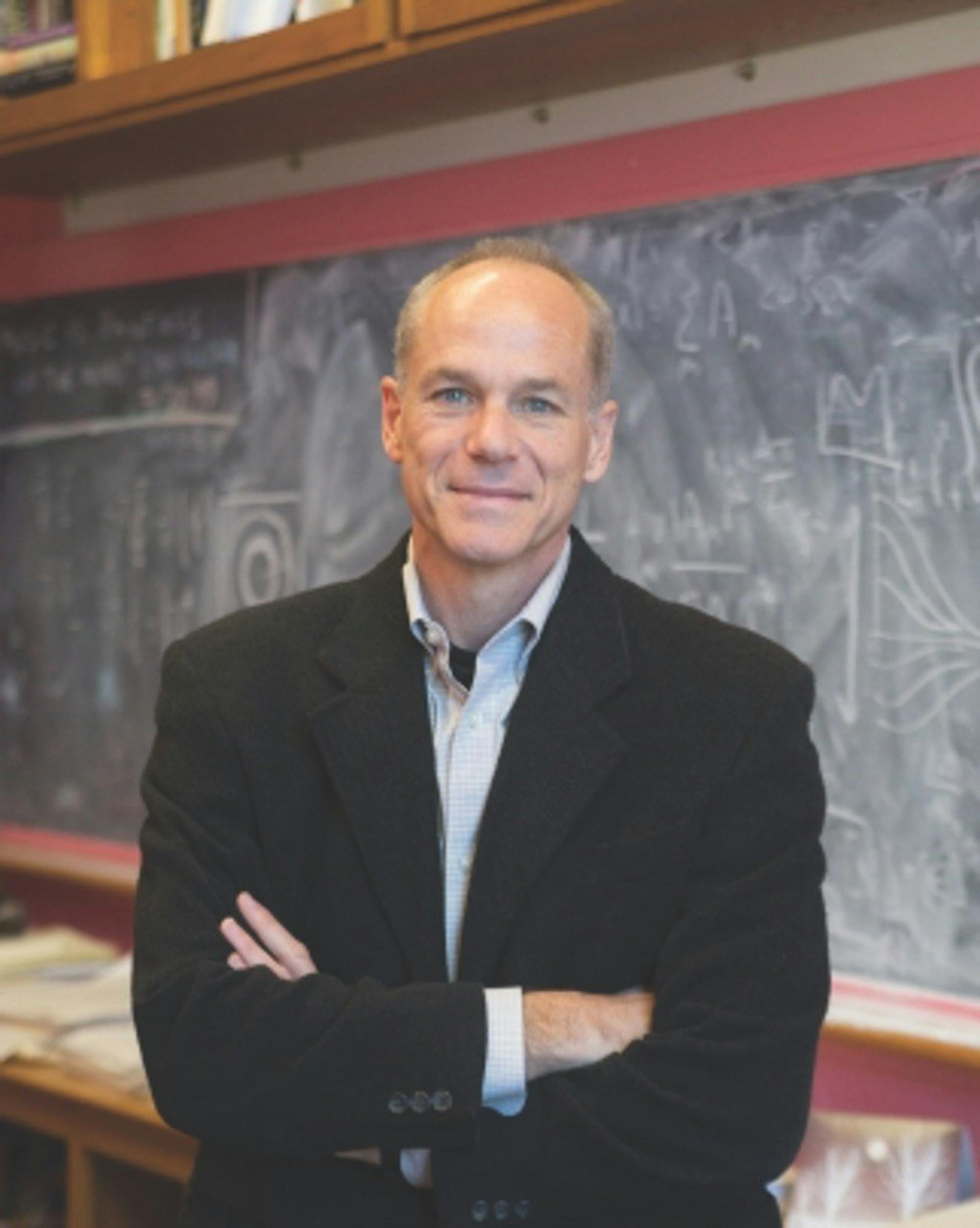Physics and astronomy professor Marcelo Gleiser describes his work as “flirting with the mysterious.” On March 19, Gleiser was named the 2019 winner of the Templeton Prize, an award that recognizes an individual who, in the view of a panel of external judges, has made an “exceptional contribution to affirming life’s spiritual dimension.” The prize carries a monetary award of £1.1 million, which is around $1.4 million.
The Templeton Prize was established in 1972 by philanthropist Sir John Templeton with the aim of identifying “outstanding individuals who have devoted their talents to expanding our vision of human purpose and ultimate reality,” according to the Templeton Prize website.
Templeton Foundation director of strategic communication Benjamin Carlson said in an email interview that the prize has been awarded to humanitarians, religious leaders, philosophers, theologians and scientists. Previous recipients of the award include Mother Teresa, Jean Vanier, Desmond Tutu and the 14th Dalai Lama.
“As a physicist and public intellectual, Marcelo Gleiser joins the company of previous scientist-laureates such as Paul Davies, Freeman Dyson and Martin Rees,” Carlson added.
Gleiser said he was humbled and honored to be the 2019 laureate and join the roster of Templeton Prize winners.
“I knew I was nominated, but from being nominated to actually winning is a very big difference,” he said. “I was essentially stunned when I got the news by phone call. I just couldn’t believe that it actually happened.”
Gleiser describes his work as bringing a human perspective to science.
“I look at science in the much broader context of how it fits in the big narrative of who we are as human beings in the universe, which is full of mystery,” he said. “A lot of my colleagues will dismiss this … but perhaps because of my own personality and the person I am, I really look at [science] as another way to engage spiritually with a world that is much bigger than we are.”
In addition to his work as a theoretical physicist and cosmologist, Gleiser has written five books in English and nine in Portuguese. In 2007, he co-founded NPR’s “13.7: Cosmos and Culture” blog with astrophysicist Adam Frank, which recently moved to Orbiter Magazine under the new name “13.8.” Brazil’s largest daily newspaper, Folha de São Paulo, has featured more than 900 weekly columns written by Gleiser. At Dartmouth, Gleiser founded the Institute for Cross-Disciplinary Engagement, which strives to facilitate open dialogue between the sciences and humanities.
According to Carlson, the nomination process for the prize typically ends in July of the previous year. After an internal review process, a panel of external judges receives the candidates’ dossiers in early October. The following month, the judges independently submit ballots to select the winner.
Evan Thompson, a philosophy professor at the University of British Columbia who wrote an endorsement letter for Gleiser during the nomination process, said that Gleiser’s message about the connection between science and spirituality is needed in the world today.
“[Gleiser] represents a different way of thinking about science in relationship to the human spirit and the natural world that’s positive and life-affirming,” Thompson said. “I think that’s a sensibility that’s common to many scientists, but [Gleiser] is just a very powerful exponent and articulator of that.”
He added that Gleiser — the first Latin-American individual to be awarded the Templeton Prize — has a unique international reach.
“[Gleiser] is Brazilian, he’s based in the United States … [and] his background in terms of his family is Jewish, so he kind of embodies a whole range of international elements,” Thompson said. “He pulls together these different cultural elements in a way that really bridges different constituencies and communities internationally.”
Psychological and brain sciences professor Peter Tse, who serves as a steering board member for ICE, said he also sees Gleiser’s humility and rejection of dogmatism as the way forward.
“I think he’s also deserving of the prize for his emphasis on what we don’t know, [and] also for his emphasis on the limits of the human capacity to know,” Tse said. “Rather than despair at that, we should accept it and continue our quest to expand the island of knowledge.”
Tse contrasted Gleiser’s viewpoints with those of famous atheists such as Richard Dawkins, Daniel Dennett and Sam Harris.
“We need fewer fundamentalists in the world because that’s just the path to conflict and ultimately war,” he said. “We need more people who are open, humble and open to discussion.”
Since the award was announced, Gleiser said he has received 20 to 30 invitations to speak at conferences around the world.
“It shows you the impact of the prize and the importance of this message and that people are wanting to hear it,” he said.
Gleiser will receive the award on May 29 at the Metropolitan Museum of Art in New York City. He noted that he has been trying to organize a way for the Dartmouth Symphony Orchestra to perform at the event.
“It’s a really beautiful ceremony, so it would be really awesome if, on the 250th anniversary of Dartmouth, the DSO could perform at the Met as their professor wins a prize,” Gleiser said. “It’s a very symbolic thing, and I hope it works.”
Rachel is a '21 from Plainsboro, NJ and is currently serving as the editor-in-chief of the 177th directorate. She is pursuing a double major in economics and philosophy.




